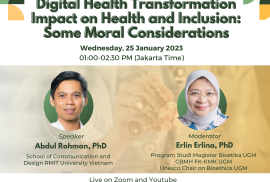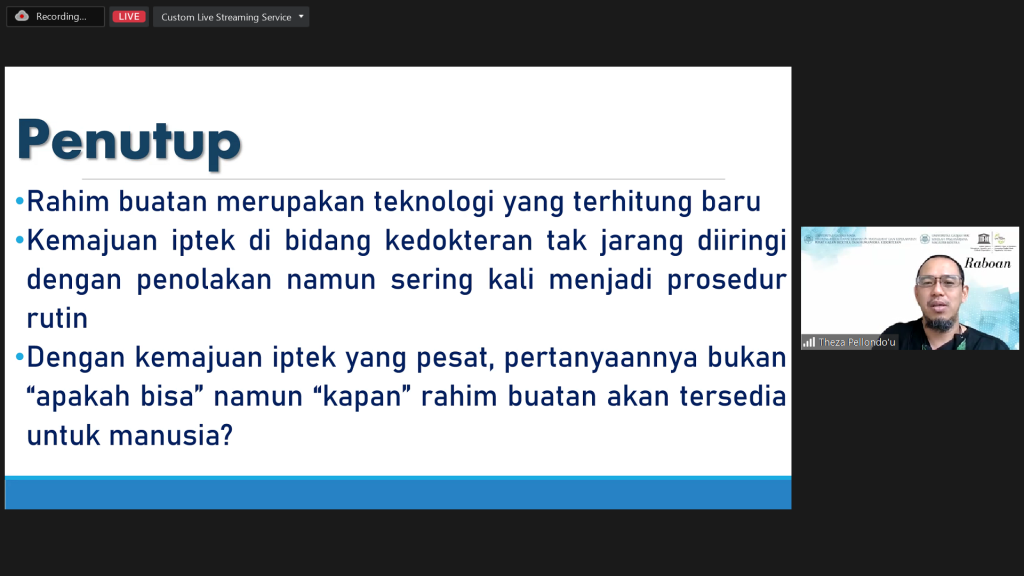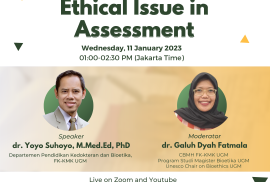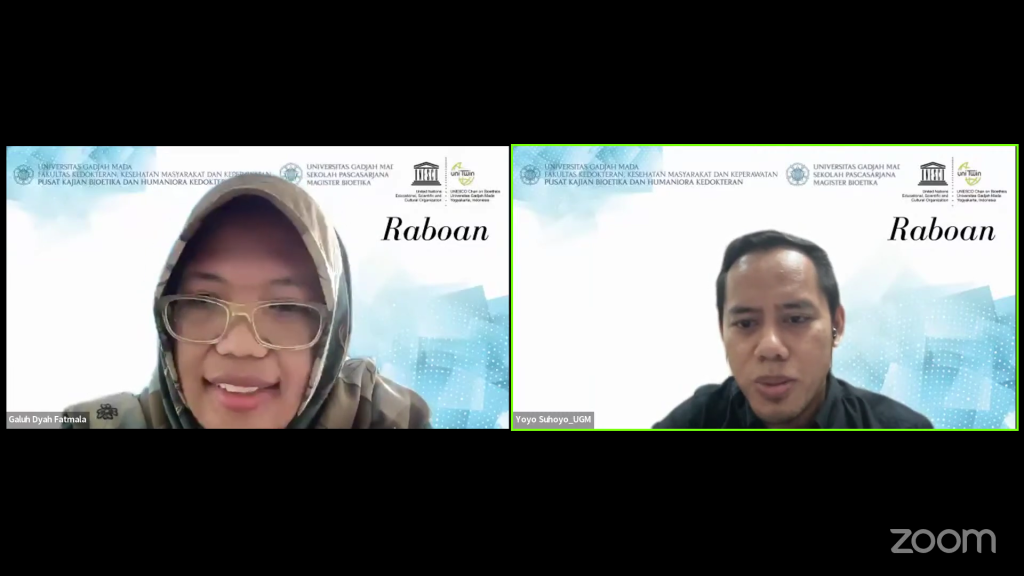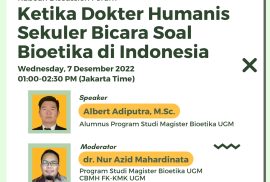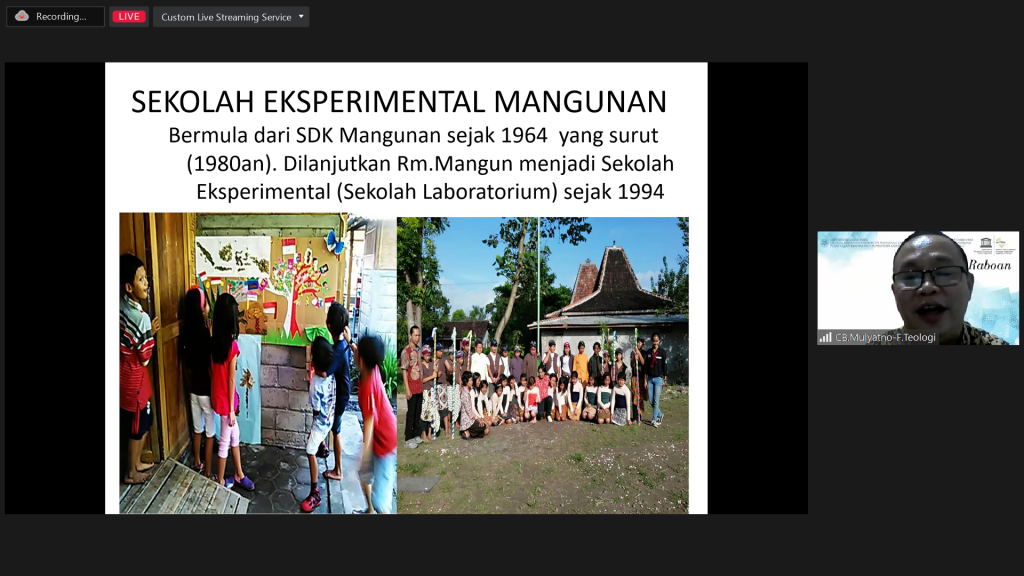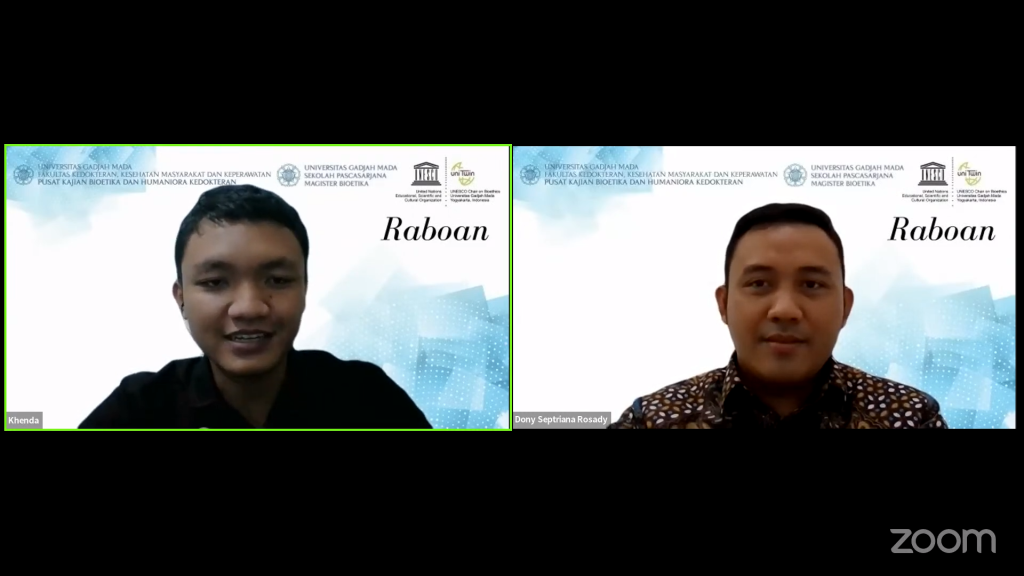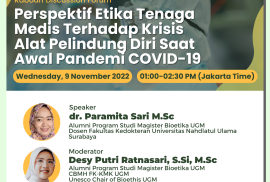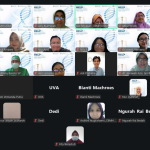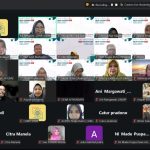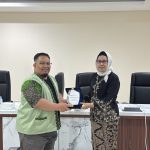
Center for Bioethics and Medical Humanities held Raboan Discussion Forum on Wednesday (25/01). The weekly discussion forum raised topic Digital Health Transformation Impact on Health and Inclusion: Some Moral Considerations. The topic was presented by Abdul Rohman, PhD. and lead by moderator Erlin Erlina, PhD.
People with disabilities (PwD) have faced challenges accessing information related to the pandemic, including vaccination programs, indicating an inconsistent implementation of social inclusion principles in the pandemic response plans. In response, three organizations of PwD in Vietnam organized five online information sessions between late 2021 and early 2022 when major cities in Vietnam were on lockdown. During each session, medical experts shared pandemic and vaccination-related information with 209 participants. After the session, participants were asked to rate their confidence in COVID-19 vaccines, share what information they needed, what information sources they used, and how to improve the inclusiveness of vaccination programs. The study found that PwD in Vietnam are willing to take vaccines, but making a range of information sources accessible to them can help communicate the side effects of the vaccines to their specific health conditions. It is important to consistently implement disability rights in vaccination programs as part of the pandemic response plans to become more inclusive. The study recommends strengthening the capacity of organizations of PwD to produce accessible information independently to better protect them in future pandemics.

